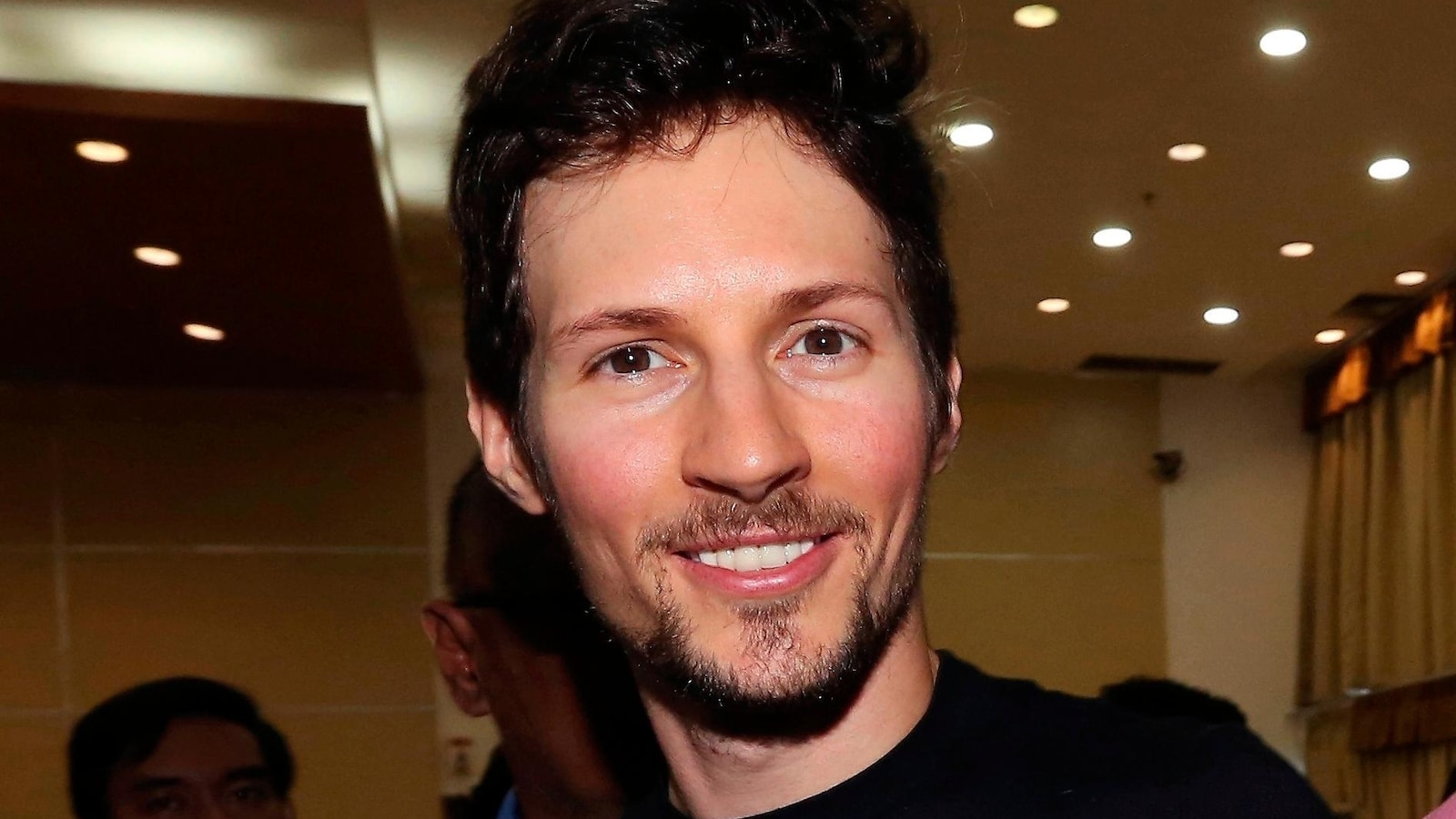
PARIS — French prosecutors are expected to charge or release the CEO of the popular messaging app Telegram, Pavel Durov, after his police custody order expires on Wednesday.
Durov was detained Saturday at Le Bourget airport outside Paris as part of a judicial inquiry opened last month involving 12 alleged criminal violations. They include allegations that his platform is being used for selling child sexual abuse material and drug trafficking, fraud, abetting organized crime transactions and Telegram’s refusal to share information or documents with investigators when required by law.
Under French law, Durov can be held in custody for questioning for up to 96 hours after the arrest. Paris prosecutor’s office said in a statement that Durov’s police custody order was extended on Monday evening for up to 48 hours. After that, authorities must release or charge him, the prosecutor’s office said in an earlier statement.
His arrest in France has caused outrage in Russia, with some government officials calling it politically motivated and proof of the West’s double standard on freedom of speech. The outcry has raised eyebrows among Kremlin critics because in 2018, Russian authorities themselves tried to block Telegram but failed, withdrawing the ban in 2020.
In Iran, where Telegram is widely used despite being officially banned after years of protests challenging the country’s Shiite theocracy, Durov’s arrest in France prompted comments from the Islamic Republic’s supreme leader. Ayatollah Ali Khamenei weighed in with veiled praise for France for being “strict” against those who “violate your governance” of the internet.
French President Emmanuel Macron said Monday that Durov’s arrest wasn’t a political move but part of an independent investigation. Macron posted on X that his country “is deeply committed” to freedom of expression but “freedoms are upheld within a legal framework, both on social media and in real life, to protect citizens and respect their fundamental rights.”
In a statement posted on its platform after Durov’s arrest, Telegram said it abides by EU laws, and its moderation is “within industry standards and constantly improving.”
“It is absurd to claim that a platform or its owner are responsible for abuse of that platform,” Telegram’s post said. “Almost a billion users globally use Telegram as means of communication and as a source of vital information. We’re awaiting a prompt resolution of this situation. Telegram is with you all.”
Durov is a citizen of Russia, France, the United Arab Emirates and the Caribbean island nation of St. Kitts and Nevis.
The UAE Foreign Ministry said Tuesday that it was “closely following the case” and had asked France to provide Durov “with all the necessary consular services in an urgent manner.”
Kremlin spokesman Dmitry Peskov said he hoped that Durov “has all the necessary opportunities for his legal defense” and added that Moscow stands “ready to provide all necessary assistance and support” to the Telegram CEO as a Russian citizen.
“But the situation is complicated by the fact that he is also a citizen of France,” Peskov said.
Telegram, which says it has nearly a billion users worldwide, was founded by Durov and his brother after he himself faced pressure from Russian authorities.
In 2013, he sold his stake in VKontakte, a popular Russian social networking site which he launched in 2006.
The company came under pressure during the Russian government’s crackdown following mass pro-democracy protests that rocked Moscow at the end of 2011 and 2012.
Durov had said authorities demanded that the site take down online communities of Russian opposition activists, and later that it hand over personal data of users who took part in the 2013-2014 popular uprising in Ukraine, which eventually ousted a pro-Kremlin president.
Durov said in a recent interview that he had turned down these demands and left the country.
The demonstrations prompted Russian authorities to clamp down on the digital space, and Telegram and its pro-privacy rhetoric offered a convenient way for Russians to communicate and share news.
Telegram also continues to be a popular source of news in Ukraine, where both media outlets and officials use it to share information on the war, and deliver missile and air raid alerts.
Western governments have often criticized Telegram for a lack of content moderation, which experts say opens up the messaging platform for potential use in money laundering, drug trafficking and the sharing of material linked to the sexual exploitation of minors.
In 2022, Germany issued fines of $5 million against Telegram’s operators for failing to establish a lawful way to reporting illegal content or to name an entity in Germany to receive official communication. Both are required under German laws that regulate large online platforms.
French prosecutors are currently deliberating on whether to charge or release Pavel Durov, the CEO of popular messaging app Telegram. Durov has been under investigation for his alleged involvement in facilitating illegal activities on the platform, including terrorism and money laundering.
The decision comes after a lengthy investigation into Telegram’s role in enabling criminal behavior, particularly in the wake of several high-profile cases where individuals used the app to communicate and coordinate illegal activities. French authorities have been working closely with international law enforcement agencies to gather evidence against Durov and his company.
Telegram has long been known for its commitment to user privacy and encryption, which has made it a popular choice for individuals seeking secure communication channels. However, this same commitment to privacy has also made it a target for criminals looking to evade detection and law enforcement.
In recent years, Telegram has faced increasing pressure from governments around the world to provide access to user data and cooperate with law enforcement investigations. Durov has been vocal in his opposition to these demands, arguing that compromising user privacy would undermine the fundamental principles of the app.
The outcome of the French prosecutors’ decision will have far-reaching implications for Telegram and its users. If Durov is charged, it could set a precedent for other countries to take similar action against the company. On the other hand, if he is released, it could bolster Telegram’s reputation as a defender of user privacy and encryption.
Regardless of the outcome, the case highlights the ongoing tension between privacy rights and law enforcement needs in the digital age. As technology continues to advance, governments and tech companies will need to find a balance between protecting user privacy and ensuring public safety.


